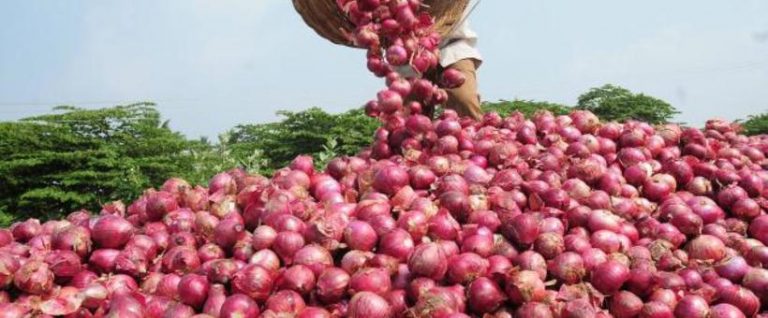
Here are the top 4 most profitable crops in Kenya today:
1. Passion fruit
If you are looking for a high-value crop that can produce an income in the first year, take a look at passion fruit farming. Passion fruit farming has nearly unlimited possibilities from extended life span exceeding three years after establishment to ability to intercrop.
It doesn’t cost much to start growing passions for profit either — just a few shillings for seedlings and supplies. Demand for passion fruits is set to rise even more, due to changing consumer preferences as Kenyans move from carbonated soft drinks to fresh juices.
Furthermore, brands like Coca-cola, Afia juices, Del-Monte are already sourcing various fruits from farmers to tap fresh fruits processing segments. Despite all the interest by fresh drink processors, the supply of this fruit is scarce. This presents an opportunity for you as a farmer.
I saved Sh. 3,000 monthly to start my sanitary pads importation business
The crop produces high yields under proper care, for instance, a yield of 50,000kg of passion fruit per hectare has been reported in Kenya. The average price of one kilo of passion fruits is Sh50 in various market centres in the country. However, you can can still sell at a higher price through direct marketing. From one hectare, it’s possible to earn over Sh2,000,000; an earning that exceeds many other farming enterprises.
Furthermore, the maturity and ripening of the fruits, does not happen at the same time some take three days others one week while others two weeks. This is an advantage, as it will allow you to harvest weekly, and have time to market the produce. Starting as a small grower you will find lots of eager buyers at you neighbourhoods and supermarkets.
2. Strawberries
The demand for strawberries is bursting at the seams and the supply is low. This is because of the strawberry flavour from yoghurt, ice-creams, and jams and in perfumes. Companies that use these fruits are relying on imports this is sufficient justification why strawberry farming is and will remain lucrative agribusiness in the years to come. Strawberries can grow in almost every part of our country provided there is constant water supply and stable temperature.
A one eighth of an acre would be adequate for a beginner but if you are in an urban setting you can invest in a few containers (which you can then put in your backyard) and start farming. It takes about 70 days for the crop to mature and produce the first fruits. But because the fruits are highly perishable (stays fresh for four to five days after harvesting), it is advisable to start looking for market early enough to avoid incurring losses.
An eighth piece of land can produce between 30kg and 50kg of strawberries per week and each kilo goes for about Sh200 at the current market price. Now assuming your small farm produces 50Kgs per week then that means you can make Sh40,000 per month using only a small portion of your land.
Once you plant them, 70 days down the line you will get your first harvest. This will continue for up to three years with two to three harvesting seasons every year. Like any other business with attractive returns, strawberry farming in Kenya requires capital. Chandler is the most popular variety. Strawberries are runners, so once you plant, you do not need to buy other seedlings as you can propagate them by removing the splits from the parent plant.
You don’t have to be an agriculture expert to succeed in strawberry farming. All you need to do is find a good piece of land. Then you need to source for the right seedlings – and this is where you need to contact Kenya Livestock and Agricultural Research Institute (Karlo) for assistance. Alternatively, you can talk to other successful farmers in your area for assistance in sourcing for the right variety.
3. Mushrooms
Mushroom production of late has captured the attention of the Kenya’s farming community with most mushroom farmers boasting amazing profits. Mushroom are land and rainfall independent hence making them the better option for those looking to maximise revenue from their land usage. For those without space to garden, growing mushrooms for profit can produce a great return in a small space.
Exotic mushrooms, such as oyster and shiitake, make sense, as they can be grown indoors without soil. They only require a house and your attention. Mud thatched houses can create the right climate for mushroom growing. The demand in Kenya is unsatisfied with data indicating that we are only producing 500 tonnes of these mushrooms against an annual demand of 1,200 tonnes.
Read more: The cost of rearing Kienyeji chicken in Kenya
Mushrooms can be grown using various substrates from agricultural wastes such as cereal straws such as maize stalks, bean stalk, wheat straw Coffee pulp, coffee husks, paper waste, papyrus, water hyacinth, banana fronds etc. Cotton husks, maize cobs, banana leaves, papyrus, grass straw, paper wastes, sugarcane bagasse and hay. Spawns ‘seeds’ can be easily obtained from Jomo Kenyatta University of Agriculture, Science and Technology (JKUAT).






Am benefiting so much from my new friends BIZNA. Thanx for keeping me updated. I hope to come and be part if these tours one day. Am a Zambian living in Zambia . thanx
Comments are closed.